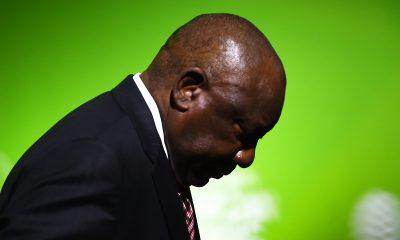Business
Only 34% of South African Companies Meet Employment Equity Standards, Labour Minister Reveals

South Africa’s Employment Equity Act (EEA) was designed to eliminate workplace discrimination and promote fair representation. However, recent inspections by the Department of Employment and Labour reveal that only 34% of businesses met employment equity requirements in 2024.
Despite government efforts to address workplace transformation, thousands of businesses continue to fall short, prompting legal action against some non-compliant companies.
Employment Equity in South Africa: A Persistent Challenge
The Employment Equity Act, introduced in 1998, aims to redress historical workplace imbalances by ensuring fair representation across race, gender, and disability groups. However, recent compliance inspections show that many companies still fail to meet these standards.
Key Findings from the 2023/24 Inspections:
3,152 companies inspected
Only 1,082 met compliance standards (34%)
210 companies referred for prosecution due to non-compliance
Minister of Employment and Labour, Nomakhosazana Meth, confirmed that non-compliant businesses received notices to rectify their shortcomings. However, hundreds of companies failed to act, leading to legal referrals.
“All the non-compliant workplaces were issued with notices. Two hundred and ten workplaces that failed to comply after notices had expired were referred for prosecution,” Meth said.
Why Are Companies Failing Compliance?
Many businesses failed to meet employment equity standards due to:
Lack of Workplace Transformation – Slow progress in diversifying leadership and staff representation.
Failure to Meet UIF and COID Regulations – Non-compliance with the Unemployment Insurance Fund (UIF) and the Compensation for Occupational Injuries and Diseases Act (COID).
Weak Accountability Structures – Lack of clear policies to ensure workforce transformation and fair representation.
The Inspection and Enforcement Services (IES) branch noted that workplace transformation has been “stubbornly stagnant,” despite government pressure.
“The inspectorate is focused on transforming workplaces, yet progress remains stubbornly slow,” said Manelisi Luxande, Acting Chief Director of the Department of Labour.
Political Debate: Should Employment Equity Laws Be Scrapped?
South Africa’s affirmative action laws have been criticized by right-wing groups such as AfriForum and Solidarity, who argue that these policies unfairly target white South Africans.
Political parties in the Government of National Unity (GNU), such as the Democratic Alliance (DA) and Freedom Front Plus (FF Plus), have also called for the scrapping of the Employment Equity Act, claiming it hinders job creation and economic growth.
However, the World Bank has ranked South Africa as one of the most unequal countries globally, emphasizing the ongoing need for policies promoting workplace transformation.
Government’s Plan to Enforce Compliance
In response to rising labour law violations, Minister Meth has introduced a stricter enforcement strategy, including:
Hiring 20,000 additional labour inspectors to monitor compliance.
On-the-spot fines for non-compliant companies.
Increased workplace inspections and site visits across all provinces.
“Since assuming office in July, we have intensified our efforts to ensure adherence to labour laws through high-impact blitz inspections and site visits,” said Meth.
The Future of Workplace Transformation in South Africa
With only 34% of companies compliant, the government faces a tough challenge in ensuring fair employment practices. While critics argue for scrapping employment equity laws, others stress the importance of addressing workplace inequality.
Key Takeaways:
Non-compliant businesses face legal action if they fail to meet employment equity standards.
Workplace transformation remains slow, despite government interventions.
Political debates continue over the role of affirmative action in South Africa’s economy.
The future of employment equity in South Africa will depend on whether the government can enforce compliance without stifling business growth. For now, companies must act quickly to meet the requirements or face legal consequences.
{Source IOL}
Follow Joburg ETC on Facebook, Twitter , TikTok and Instagram
For more News in Johannesburg, visit joburgetc.com



























